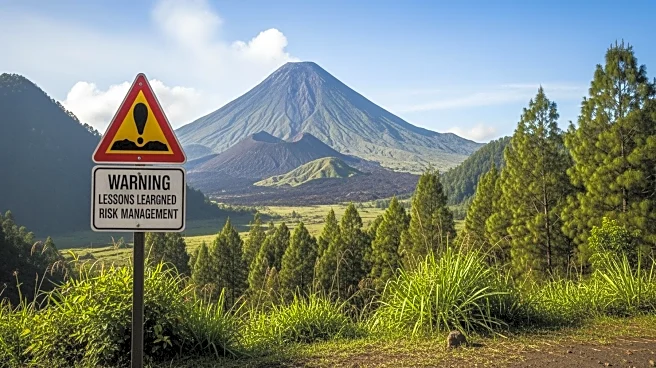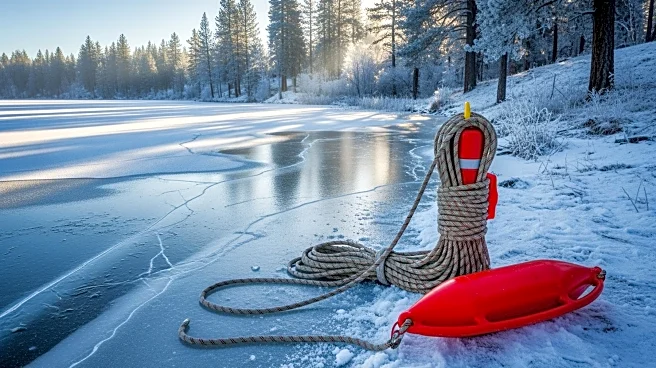What's Happening?
The aftermath of the Nevado del Ruiz volcanic eruption in Colombia in 1985, which resulted in over 20,000 casualties, has prompted a reevaluation of volcanic risk management strategies. Despite signs of unrest
prior to the eruption, the institutional response was inadequate, leading to a catastrophic impact on communities such as Armero. The disaster exposed significant gaps in Colombia's hazard preparedness and public risk awareness. Researchers emphasize the need for improved communication and policy frameworks to address volcanic and other natural hazards effectively. The focus is on enhancing institutional capacity and integrating scientific knowledge with community engagement to mitigate risks.
Why It's Important?
The Armero disaster serves as a critical case study in understanding the complexities of natural hazard management. It underscores the importance of timely and accurate communication between institutions and communities at risk. The event has catalyzed advancements in hazard assessment and mitigation strategies, highlighting the need for inclusive and multidisciplinary approaches. Effective risk management can significantly reduce the human and economic toll of natural disasters, which continue to claim thousands of lives annually. By learning from past events, policymakers can develop more robust frameworks to protect vulnerable populations and improve resilience against future hazards.
What's Next?
Future efforts in volcanic risk management will likely focus on integrating indigenous knowledge and community-based approaches to enhance trust and communication. Policymakers are encouraged to update frameworks to address cascading hazards and their complex interactions. Continuous research and monitoring are essential to understand the unpredictable nature of volcanic events and improve response strategies. Institutions must prioritize the co-creation of knowledge with affected communities to ensure equitable participation and effective risk communication.
Beyond the Headlines
The Armero disaster highlights ethical considerations in disaster management, such as the need for equitable access to information and resources for all communities. It also raises questions about the role of socio-economic and cultural factors in shaping risk perception and response. Long-term shifts in policy and practice may emerge as institutions strive to balance scientific advancements with community needs and values.








